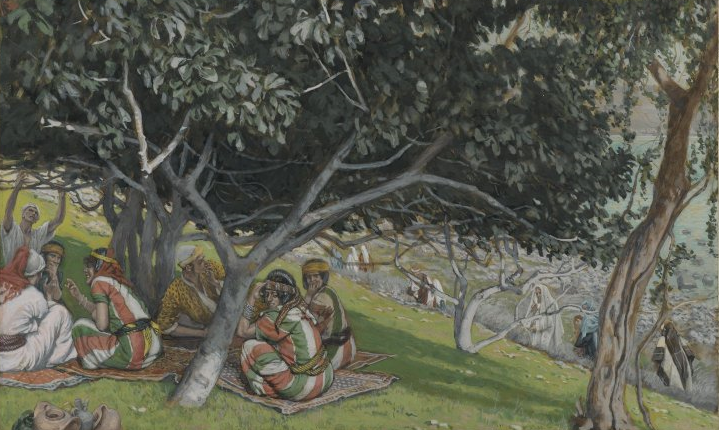Nathanael said to him, "How do you know me?" Jesus answered him, "I saw you under the fig tree" (Jn. 1:48).
Have you ever been noticed across a crowded room? Has anyone ever paid attention to you unexpectedly? Has someone noticed something special about you – something small or something you didn’t think anyone knew, or something you didn’t even know yourself? Has anyone ever looked at you in such a way that pages of words and thoughts were communicated in a moment?
And how did that make you feel? How did being connected with that person make you feel? Alive? Like the best version of yourself? Not alone?
We live in a constant state of tension between two extreme opinions of ourselves. On the one hand we are utterly enamored with ourselves – this is the side of us that subconsciously thanks God that we are not like the rest of humanity (cf. Lk. 18:11). On the other hand, we doubt and even despise ourselves to the point of believing ourselves unlovable (“If they really knew me, they would not love me”).
But what if there was someone whose gaze alone could penetrate us with such clarity that we moved away from this exaggerated tension into the peaceful middle, where we could see ourselves as we truly are – genuinely flawed but entirely lovable? What if there was someone whose gaze expressed such love to us that we believed once and for all that we are the beloved? What if there was someone who could simply say “I saw you” – and in those words communicate to us that he knows all the little things about us, all the special things, all the things no one else ever noticed before? How would we respond to that remarkable person?
Nathanael responded: “Rabbi, you are the Son of God; you are the King of Israel” (Jn. 1:49). And then he followed him.
I suppose one who noticed us across a crowded room and loved us so would be irresistible. I suppose that is what Nathanael felt. Jesus saw Nathanael – saw him, knew him, and loved him. And as one of his disciples, he taught him, nurtured him, challenged him, called him friend, encouraged him, died for him. He made promises to him and kept them. Then he went and prepared a place for him.
Under the fig tree, you too have been seen. Loved, taught, nurtured, befriended. Everything about you. Seen, known, and loved beneath the fig tree.
Nathanael Under the Fig Tree by James Tissot
“Standing before him with open hearts, letting him look at us, we see that gaze of love which Nathanael glimpsed on the day when Jesus said to him: ‘I saw you under the fig tree’ (Jn. 1:48)” (Pope Francis, Evangelii Gaudium 264).


